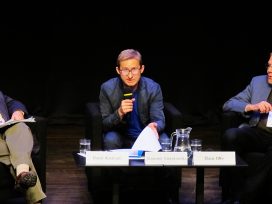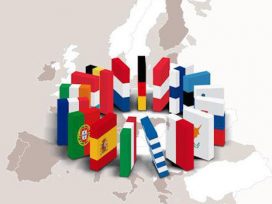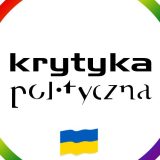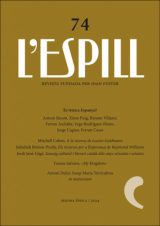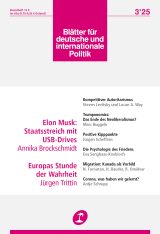Claus Offe
Professor Emeritus of Political Sociology at the Hertie School of Governance in Berlin and a member of the Academic Advisory Board of the Institute for Human Sciences, Vienna. Publications include ‘The shared society: A model for a new welfare state’ (Die Teilhabegesellschaft. Modell eines neuen Wohlfahrtsstaates, with Gerd Grözinger and Michael Maschke, 2006) and Reflections on America: Tocqueville, Weber and Adorno in the United States (2005).
Articles
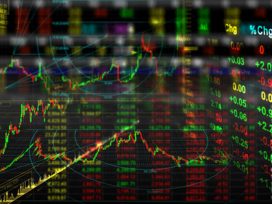
Two-and-a-half theories
Post-democracy in the age of global financial markets
Beyond do-it-yourself politics, short-lived mass protests in the metropolises and a further swelling of the ranks of the popular right, the democratization of democracy is still possible, contends Claus Offe. But not if political life remains locked within the “prison of the market”.
Democratic deficit, enlargement fatigue and ever more rescue funds: is there still a future for a common Europe? In a discussion in Eurozine’s series “Europe talks to Europe”, prominent intellectuals and opinion makers from western and eastern Europe diagnosed causes for the current malaise of the EU.
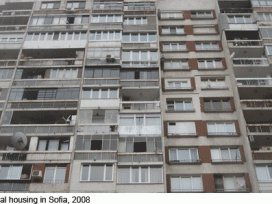
“Democracy” in post-communist Europe is strongly associated with high levels of state-sponsored social protection, indicating a culture far removed from the prevalent system of market-mediated private provision. The dissatisfaction with democracy expressed by the many not to have benefited from transition suggests CEE welfare states have a long way to go before they attain western levels of credibility. Their democracies depend on that gap being bridged.
Über zehn Jahre nach Ende des Kalten Krieges hat der Westen am 11. September 2001 wieder einen Feind gefunden. So gilt es nun Klarheit über den neuen Konflikt herzustellen und eine neue Definition der Sicherheit zu finden, die es vorzieht den Hass durch Lernprozesse einzudämmen, anstatt ihn mit Einschüchterungstaktiken zu bekämpfen.
The Democratic Welfare State
A European Regime Under the Strain of European Integration
In the absence of a democratic regime in Europe as well as an European welfare state – to say nothing about a “European culture” – it is hard to find any foundation of a European identity, argues Claus Offe.
